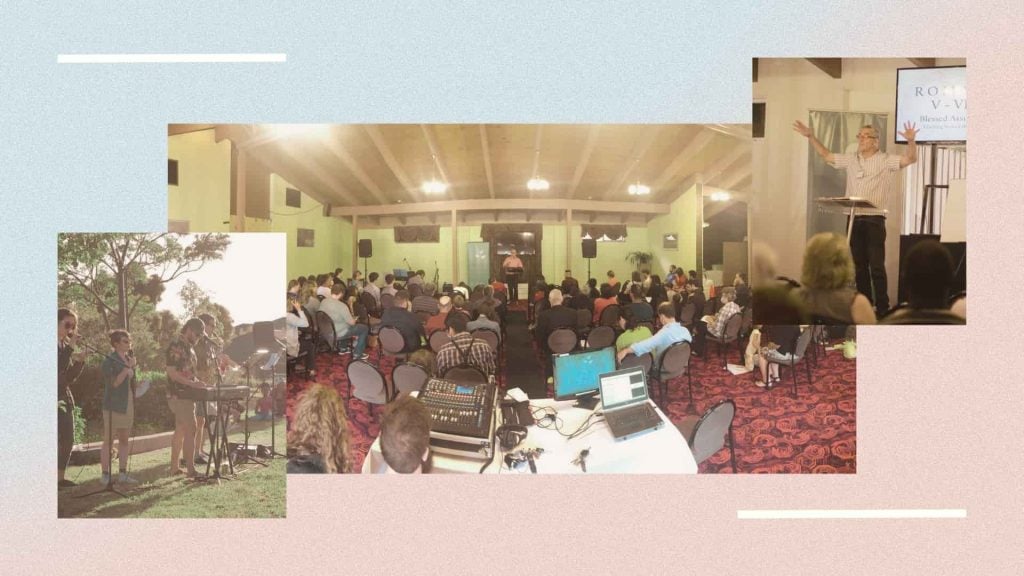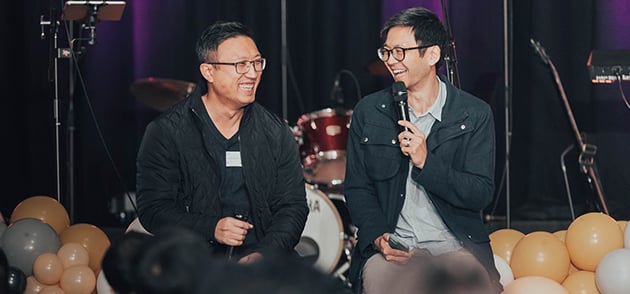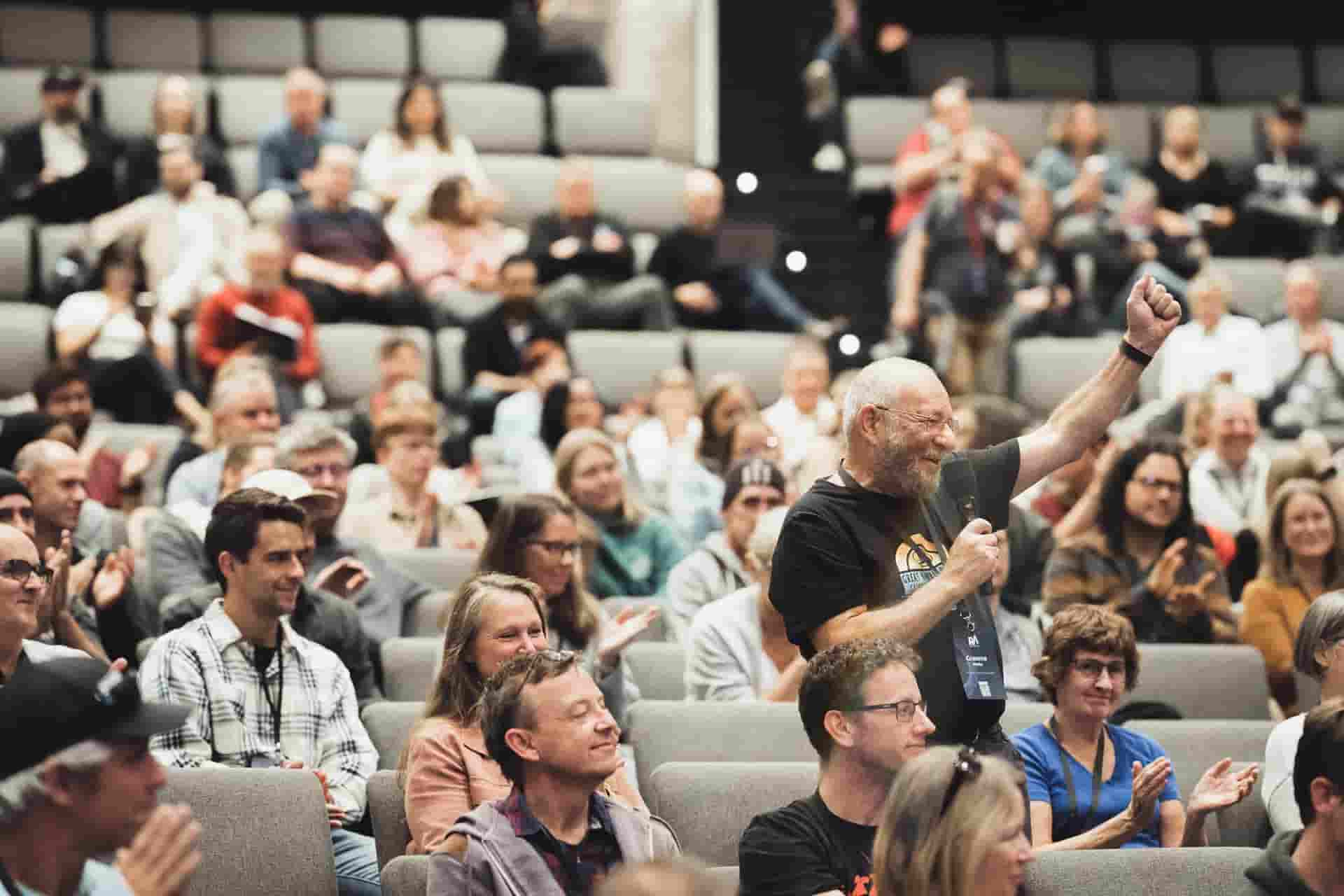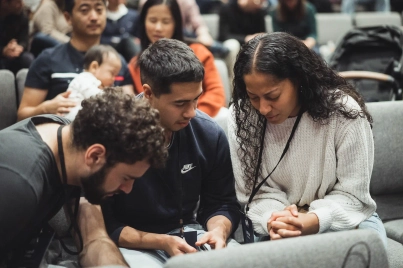
Dave Martin is the Senior Pastor of New Life Presbyterian Church in Officer, Victoria which he planted in partnership with Reach Australia in 2018. Officer is on the south eastern edge of Melbourne, a fast growing suburban area.
We talked with Dave about change and its companion, fear. He told us about changes he has seen in his life, the church, and the people as well as the fears that come hand in hand with those changes.
As you have been leading New Life Presbyterian Church, what changes have you seen in your life?
I need to keep growing as a disciple of Jesus, fighting sin and the nature of pride. In particular I’ve noticed that I need to spend more time thinking about ministry. I’m a doer, it comes naturally to me to jump in and get things done.
Our church has hit the 80 people mark and is quite stable but in order for us to double those numbers in the next five years we can’t keep doing things the same way, which means that I can’t keep doing things in the same way.
I’m a bit afraid of that growth because I’ve always had in the back of my mind that I can pastor a church of 80 people but 160, 200 or 300 people is different. It’d be great to reach 300 people but there are a lot of changes that we need to implement to be able to operate as a church of that size.
That means that I have to change. One part of that change is how I use my time and plan my calendar. I’ve always been a last minute person but this isn’t the most effective or loving for other people.
I need to lock in times when I’m thinking about ministry and the whole organisation of the church. I need to lock in planning days. We recently had our first full day of planning with our church elders and, even though that’s a big commitment for them in their busy lives and I didn’t want to burden them, it is important and worthwhile.
I have also had to address some of my fears. There is always the fear of failure. Some people might say, “You have established a church in five years. You have 80 people regularly coming along. That’s a success.” However, we will have a lot more people coming into the area over the next few years and we need to be ready for that. At the moment we’re not even keeping up with the growth over summer, so we have a lot of work to do.
Another fear I need to face is whether I can change and be a different leader. I’ve been me for 60 years so there are ingrained habits to break. I need to consciously think of how I can change in order to develop more leaders.
That’s not easy in the context of people in the suburbs with mortgage stress, time stress, and family stress as well as elderly people and people with mental health issues. It takes time and effort to develop competent leaders to minister into that setting. Where some leadership development has been neglected, I have needed to work out what I can provide that is manageable and that will raise up leaders, train them, and lead them into further leadership roles.
Have there been changes that you have seen in your church as an organisation?
Over the last 12 to 18 months we have seen the most obvious need for change. We are renting our premises and they were tired and in need of work. We received permission to paint and do some minor improvements. Our board of elders is made up of men. They looked around and felt quite at home, but we had a group of women who felt the need for the change and were motivated to get it done. It was exciting to see them wanting this for gospel reasons and having the energy to make it happen. It was like a tornado hit the place – there was a nice cover for the welcome table, nice cover for morning tea, shifting morning tea to where there was more space, and putting a safety barrier up.
Once everyone understood how important it was for safety and for the gospel, it just got done. It’s been a physical, environmental change.
We’ve got a building project on the side and that is going to take all the momentum we have this year to make it happen.
The second change was organisationally. We have adopted ecosystem thinking to address that our church had plateaued at 80-90 members. As a small organisation, everything had come down to me, I was driving it all. That simply had to change. This was another fear of mine, being protective of my own responsibilities. I needed to pass this onto the elders.
I was worried about how the elders could step up and look after sections of the ecosystem. They’ve got kids, a wife, family, a job.
Amazingly, when I asked them, they all took on the roles. It’s a process that we are at the beginning of. They are taking hold of their roles and I need to make sure that I keep supporting them.
Along with the elders taking on leadership of some areas, we also set up ministry teams supporting that. We didn’t get everything right the first time around but the support from the elders has been amazing. We will continue to watch and to evaluate. Every month we will go through the ecosystem and think about how we are going in each of the areas.
We were considered in how we brought this to the church. Some churches have a “serving Sunday”.
I decided to have a one off sermon and we presented the entirety, we walked people through the system. If we could grow to reach others, why wouldn’t we want to do that? The church was onboard.
Presenting it to the church also has changed some of the conversations that I have had with people. They have been saying, “I get it that we have to change”, and the next step has been, “I can’t ask Dave for everything”. They are not looking to me to be their personal pastor all the time but are looking to their Bible study leader. That frees me to be able to work with my leaders.
Intrinsic to the changes has been a commitment to prayer. We pray every Tuesday at 6:30. We’re praying that we would be a healthy church, in a healthy evangelistic mode. We have goals for each of the ecosystem elements that we have tended to call our prayers or prayer goals. That has helped shape our prayer meetings and our elders meetings.
Can you please tell us a bit about changes you have seen in people?
When you reach those change growth barriers, you start to scratch the surface of what people really idolise. They might tell you that they want growth but when that change comes they reveal what they really idolise. Often that is a sense of belonging.
Change needs to come from gospel priorities. One of the reasons it was easy for the elders to commit to making physical changes to our meeting space was that the women who were driving it could point to gospel reasons for the need to improve the space. They could show that it was a barrier to inviting people to church. While the elders might not have initially been behind spending the money, once they understood the gospel priorities behind it they were supportive of it.
Change has been surprisingly easy because the church has been focused on gospel priorities.
Another change has been the way we do evangelism. I had been doing evangelism in a pretty random, scattergun kind of way. Now I have been pushed to think more about a conversion engine and how necessary this is. We have introduced a New Life Course for people to invite others to, which means evangelism isn’t reliant on me. There are fears too, that no one will come or that the church won’t get behind it and invite people. But I have confidence that the church has gospel priorities to see this come through too.
Thanks for chatting, Dave.
Dave Martin has been the senior pastor of New Life Presbyterian Church in Officer Victoria since 2018



